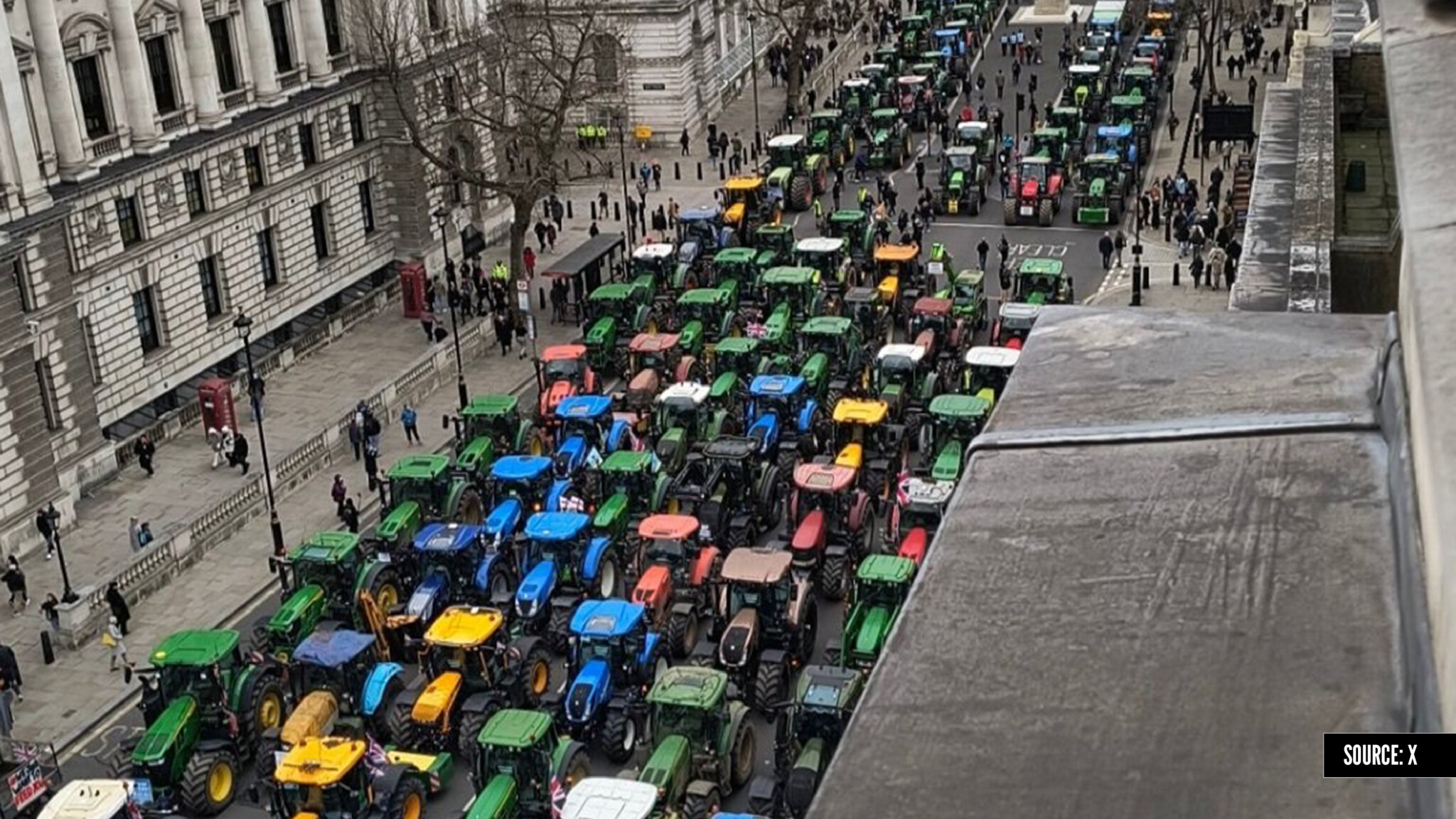Last Wednesday, British farmers took to the streets of central London in a planned protest against the Labour government’s intention to increase inheritance tax without sparing them. This is the second wave of protests in which family farmers have found themselves explaining to people too ignorant or dismissive to listen that, since farmers are typically cash-poor, such a policy would require them to sell off their machinery and land (which constitutes the bulk of their wealth) in order to pay the inheritance tax when a farm owner dies. This could free up chunks of British farmland for purchase by any large corporation that dives in. Perhaps the freed-up land might be used to develop housing in the countryside, a policy which understandably divides people. I, for one, am keenly aware that the housing crisis is downstream of too-rigid planning and development laws. But the current response from the Left is not to acknowledge the rational concerns of farmers regarding their livelihoods. Rather, it is to write off their complaints as the greed of the rich and privileged, and to engage in rhetorical class warfare. In the words of Dame Siobhan McDonagh, Labour MP for Mitcham and Morden: “It’s hard to find a poor farmer in this country”.
Enjoy independent, ad-free journalism - delivered to your inbox each week
It is tempting to draw a parallel between the threat of the breakup of smaller farms in the British countryside with dekulakization which took place after the Russian Revolution. Certainly, the open contempt for farmers who have expressed their worry and anger recalls the Bolsheviks’ famous resentment of productive peasant farmers whose asset-wealth demonized them in the eyes of collectivists. Labour has justified their decision to not spare farmers the tax with reference to the country’s several-billion-pound deficit. They habitually refuse to acknowledge the fact that they could raise more money by ceasing their policy of paying billions each year to house illegal migrants in hotels and even more expensive state-funded asylum sites (which are set to cost £1.2 billion in state funds over the next decade).
Labour has justified their decision to not spare farmers the tax with reference to the country’s several-billion-pound deficit. They habitually refuse to acknowledge the fact that they could raise more money by ceasing their policy of paying billions each year to house illegal migrants in hotels and even more expensive state-funded asylum sites (which are set to cost £1.2 billion in state funds over the next decade).
The farmers are understandably angry. Not all Labour voters in the countryside saw this coming. The Labour Party’s environment secretary, Steve Reed, promised that he would not introduce inheritance tax on farmland when the Conservatives were still in power. He now defends the new policy by blaming the Conservatives for leaving the new government with billions in debt. See my previous point: there are plenty of ways to try to close the deficit which don’t punish those who work in such a productive, long-standing, vital British industry. Reed’s U-turn is ironic given his previous declaration that Labour would be a “nature-positive government”.
One point of intrigue is this: some have argued that land might be purchased to install wind farms as part of the government’s plan to invest in green infrastructure. But if farms break up or depreciate, Britain will have to import even more of its food from abroad, driving up food miles and relying on far less regulated food production, since cheaper imports would inevitably be sourced from the global South. Food production which deforests and wrecks fertile land for the purposes of farming cattle accounts for a significant proportion of net global carbon emissions; 95% of such deforestation takes place in the tropics. Added food miles hardly improve a nation’s carbon footprint. Where are the “eco-friendly” platitudes about carbon footprints and well-regulated food production now?
This new taxation policy is not really about money or the environment. It is about people. Farmers are overwhelmingly Tory voters, understandably fearful of higher taxes and their implications. Rural lifestyles tend to accompany no-nonsense politics. Jeremy Clarkson, who has championed their cause, understands the role of widespread prejudice – what the Left might call “othering” – of farmers in the role of policy, and has done great work in trying to remedy the misconceptions of the cosmopolitan elite regarding British farms.
The politics of ressentiment dominate Labour’s profligate tax policy. Of that, there is no question.

Source: X




Comments (4)
Only supporting or founding members can comment on our articles.